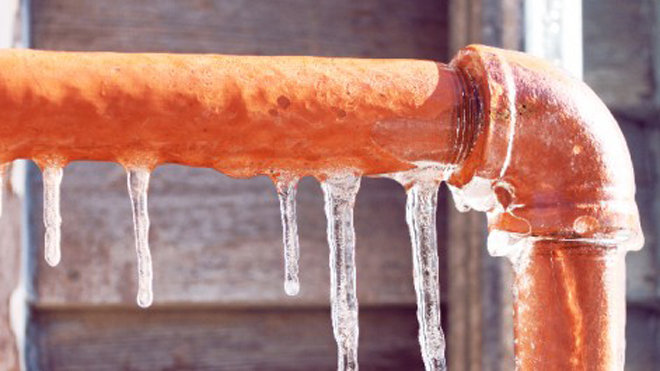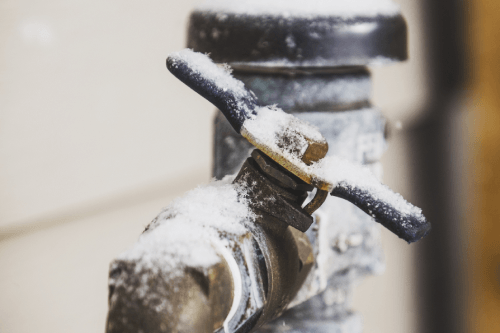Everybody is bound to have his or her own perception with regards to Winter Plumbing Precautions: Preventing Frozen Pipes.

Cold weather can wreak havoc on your pipes, particularly by freezing pipelines. Right here's just how to avoid it from taking place and what to do if it does.
Introduction
As temperature levels decrease, the risk of icy pipes boosts, potentially causing pricey repairs and water damages. Recognizing how to prevent icy pipelines is essential for home owners in cool environments.
Avoidance Tips
Insulating vulnerable pipes
Wrap pipelines in insulation sleeves or make use of heat tape to safeguard them from freezing temperatures. Concentrate on pipelines in unheated or external locations of the home.
Home heating techniques
Keep interior spaces sufficiently heated up, particularly locations with plumbing. Open cupboard doors to enable warm air to flow around pipelines under sinks.
Just how to recognize icy pipes
Search for decreased water flow from taps, uncommon odors or noises from pipelines, and noticeable frost on subjected pipes.
Long-Term Solutions
Structural changes
Take into consideration rerouting pipes away from outside walls or unheated areas. Include additional insulation to attics, basements, and crawl spaces.
Updating insulation
Invest in high-quality insulation for pipelines, attics, and wall surfaces. Appropriate insulation aids preserve consistent temperature levels and reduces the danger of frozen pipelines.
Safeguarding Exterior Plumbing
Yard hoses and outside taps
Disconnect and drain pipes yard hose pipes prior to winter. Mount frost-proof faucets or cover outdoor taps with protected caps.
Understanding Frozen Pipelines
What causes pipelines to ice up?
Pipelines freeze when subjected to temperature levels listed below 32 ° F (0 ° C) for extended periods. As water inside the pipes freezes, it broadens, taxing the pipeline wall surfaces and possibly creating them to rupture.
Dangers and damages
Frozen pipes can cause water disturbances, home damage, and costly repair work. Burst pipelines can flood homes and cause extensive structural damages.
Indicators of Frozen Water Lines
Determining frozen pipelines early can avoid them from rupturing.
What to Do If Your Pipes Freeze
Immediate activities to take
If you believe icy pipes, maintain taps open to relieve stress as the ice melts. Make use of a hairdryer or towels soaked in warm water to thaw pipes slowly.
Conclusion
Stopping frozen pipelines requires positive measures and fast responses. By recognizing the causes, indications, and safety nets, property owners can shield their pipes throughout cold weather.
Helpful Tips to Prevent Frozen Pipes this Winter
UNDERSTANDING THE BASICS: WHY PIPES FREEZE AND WHY IT’S A PROBLEM
Water freezing inside pipes is common during the winter months, but understanding why pipes freeze, and the potential problems it can cause is crucial in preventing such incidents. This section will delve into the basics of why pipes freeze and the associated problems that may arise.
THE SCIENCE BEHIND FROZEN PIPES
When water reaches freezing temperatures, it undergoes a physical transformation and solidifies into ice. This expansion of water as it freezes is the primary reason pipes can burst. As the water inside the pipe freezes, it expands, creating immense pressure on the walls. If the pressure becomes too great, the pipe can crack or rupture, leading to leaks and water damage.
FACTORS THAT CONTRIBUTE TO PIPE FREEZING
Low Temperatures: Extremely cold weather, especially below freezing, increases the risk of pipes freezing. Uninsulated or Poorly Insulated Pipes: Pipes located in unheated areas, such as basements, crawl spaces, or attics, are more prone to freezing. Insufficient insulation or lack of insulation altogether exacerbates the problem. Exterior Wall Exposure: Pipes running along exterior walls are susceptible to freezing as they encounter colder temperatures outside. Lack of Heating or Temperature Regulation: Inadequate heating or inconsistent temperature control in your home can contribute to frozen pipes. PROBLEMS CAUSED BY FROZEN PIPES
- Pipe Bursting: As mentioned earlier, the expansion of water as it freezes can cause pipes to burst, resulting in significant water damage.
- Water Damage: When pipes burst, it can lead to flooding and water damage to your property, including walls, ceilings, flooring, and personal belongings.
- Structural Damage: Prolonged exposure to water from burst pipes can compromise the structural integrity of your home, leading to costly repairs.
- Mold and Mildew Growth: Excess moisture from water damage can create a favorable environment for mold and mildew growth, posing health risks to occupants.
- Disrupted Water Supply: Frozen pipes can also result in a complete or partial loss of water supply until the issue is resolved.
WHY CERTAIN PIPES ARE MORE PRONE TO FREEZING
- Location: Pipes located in unheated or poorly insulated areas, such as basements, crawl spaces, attics, or exterior walls, are at higher risk of freezing.
- Exterior Pipes: Outdoor pipes, such as those used for irrigation or exposed plumbing, are particularly vulnerable to freezing as they are directly exposed to the elements.
- Supply Lines: Pipes that carry water from the main water supply into your home, including the main water line, are critical to protect as freezing in these lines can affect your entire plumbing system.
- Underground Pipes: Pipes buried underground, such as those connected to sprinkler systems or outdoor faucets, can be susceptible to freezing if not properly insulated.
https://busybusy.com/blog/helpful-tips-to-prevent-frozen-pipes-this-winter/

I am very interested by How to prepare your home plumbing for winter weather and I'm hoping you appreciated the new blog post. Sharing is nice. Helping others is fun. Bless you for your time. Kindly come by our blog back soon.
Book